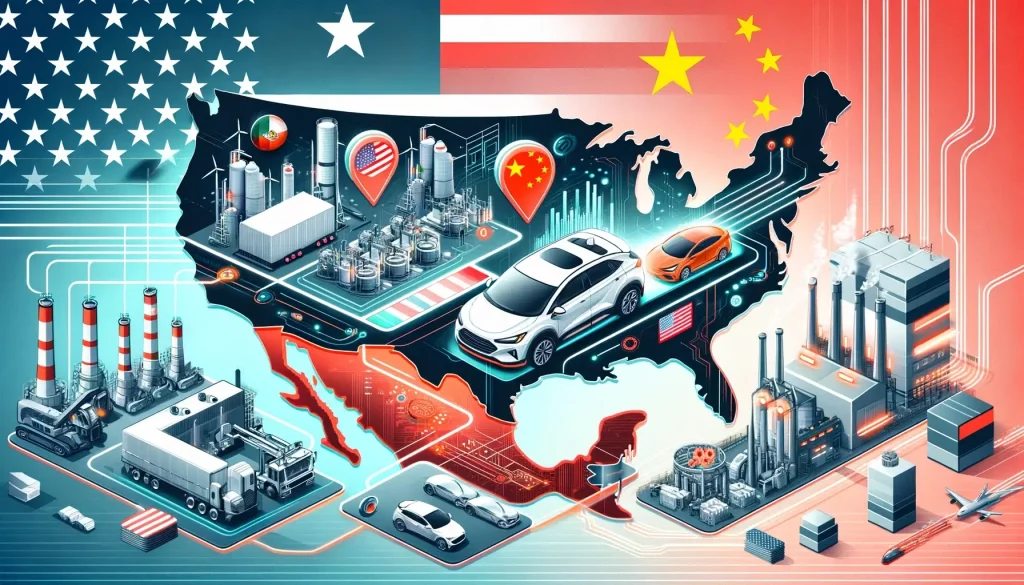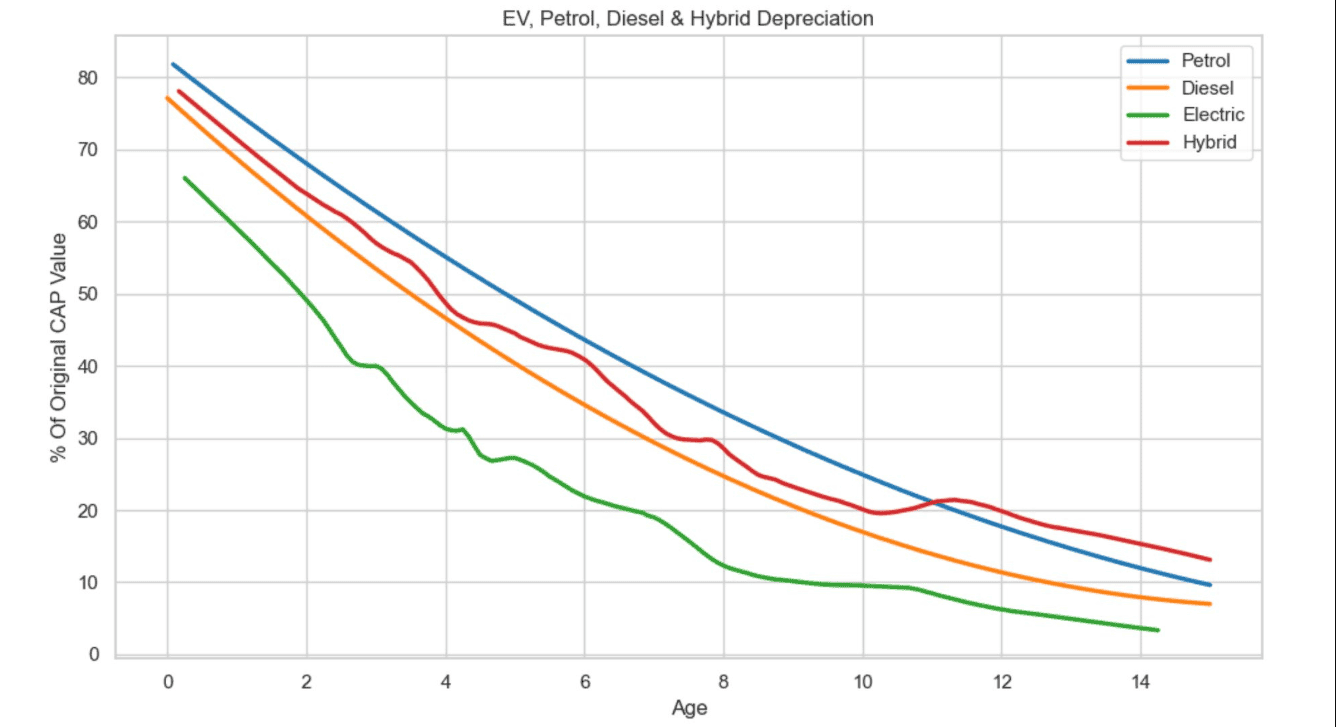The ongoing trade war between the US and China has seen the electric vehicle (EV) industry take center stage. With the White House hiking tariffs on Chinese goods, especially EVs, many wonder how this will reshape the automotive landscape. Amidst this tension, Chinese automakers are taking a strategic detour through Mexico, a move that could have significant repercussions for the US EV market. Let’s dive into the details.

How Chinese investment in Mexico impacts the US EV Market (PDF)
Chinese Automakers’ Strategic Move
Chinese automakers are no strangers to global expansion, and their latest focus is on Mexico. Companies like BYD, which claims to be the largest supplier of New Energy Vehicles globally, are already setting up shop in Mexico.
BYD has announced plans to build a manufacturing plant in Mexico, signaling a major step towards establishing a presence in North America. Although BYD currently has no plans to export vehicles to the US immediately, the investment is a calculated move to develop a supply chain and enhance manufacturing capabilities.
According to Lou Longo, international practice lead at Plante Moran, “This is a multistage investment by BYD. It gives them time to develop a supply chain, start to get better at manufacturing, and sell in other markets outside of Mexico. And, hopefully someday in the future, it gives them a shot to be able to sell into the bigger markets.”
The Trade Benefits of Mexico
Building cars in Mexico offers substantial trade advantages. Under the United States-Mexico-Canada Agreement (USMCA), vehicles with at least 75% of auto components made in North America benefit from free trade.
Even cars with Chinese-made components face only a 2.5% tariff on import to the US. This pathway allows Chinese automakers to enter the US market virtually tariff-free, circumventing the hefty import duties imposed directly on Chinese goods.
The US Market’s Response
The influx of Chinese EVs via Mexico presents a tricky situation for the US. While the US aims to block cheap Chinese cars from flooding the market, it must now consider the threat posed by Mexican-built vehicles from Chinese companies.
The US administration could potentially investigate China for bypassing trade restrictions through Mexico, similar to the solar panel tariff investigation last year. Additionally, the United Auto Workers (UAW) has urged the government to raise the 2.5% tariff on cars and components that do not meet USMCA origin requirements.
A Battle for Resources in Mexico
Chinese manufacturers setting up in Mexico might also spark a battle for resources. Established players like GM, Ford, Stellantis, Toyota, and Honda already have a significant manufacturing presence in the region. The entry of Chinese companies could lead to increased competition for materials and labor, potentially driving up costs for everyone involved.
Rising Consumer Interest in Chinese EVs
Curiously, there’s a noticeable uptick in American interest in Chinese electric vehicles, especially among younger demographics. According to a recent survey, a striking 76% of respondents under the age of 40 expressed openness to purchasing a Chinese-made vehicle.
This shift in consumer preferences could create a substantial opening for Chinese automakers in the US market, assuming they can skillfully navigate the intricate trade regulations in place.
Potential Long-Term Effects
The far-reaching impacts of Chinese investment in Mexican EV manufacturing on the US market could be significant. Should Chinese companies manage to establish a robust production presence in Mexico, they might flood the US market with competitively priced EVs.
This influx could pose a serious challenge to US-based manufacturers and alter the competitive landscape. To counteract this, the US may need to reassess its trade policies and devise innovative strategies to safeguard its automotive sector.
Conclusion
Chinese investment in Mexican manufacturing plants is a strategic move that could significantly impact the US EV market. As Chinese automakers find ways to circumvent tariffs and enter the US market through Mexico, the dynamics of the EV industry could shift dramatically.
The US faces the challenge of addressing this new threat while considering the rising consumer interest in Chinese EVs. Will the US be able to adapt its trade policies and protect its domestic market from this new wave of competition?
What do you think the US should do to address the growing influence of Chinese EVs entering through Mexico?




